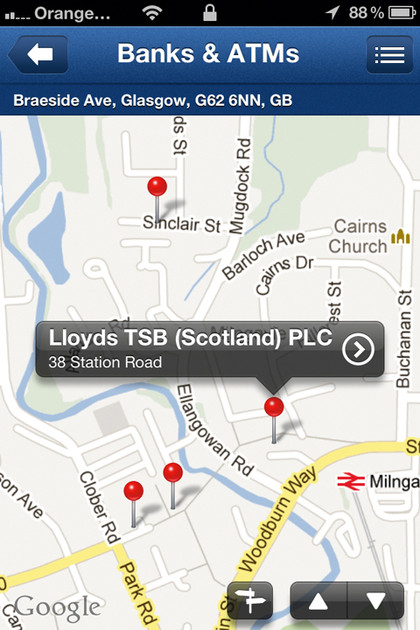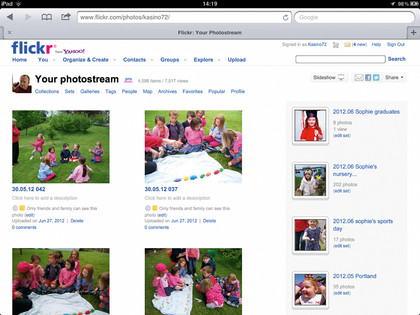Social networking on iPhone and iPad: the definitive guide
Twitter, Facebook, Pinterest, Instagram and more
Sign up for breaking news, reviews, opinion, top tech deals, and more.
You are now subscribed
Your newsletter sign-up was successful
Places hasn't had much attention recently, but when the accidentally leaked Find Friends Nearby feature reappears, it should be great for big nights out or for finding your friends if you get separated at big sporting events or gigs.
Not everybody wants to share their location, of course. In Settings, Location Services enables you to specify which apps can use your location data; you can also turn location services off altogether if you're pretending to be off sick when you're really at the beach.
Location recording

Your iOS device's GPS system can also help other apps, too. When you take a photo using Instagram, it can record where you were when you took the shot, enabling you to organise your photos by location as well as by date; location-aware apps such as NearMe can find anything from the nearest ATM to the nearest ASDA, while Localmind can tell you what's interesting in the immediate area; and apps such as Yelp can tell you not only where the nearest restaurant is, but whether you should stock up on Immodium before you go.
You can even use location awareness to discover stories: if you're in London, the clever Hackney Hear uses locations to trigger audio content such as poems and local residents' memories. In the long term, the combination of iOS 6's Passbook and location awareness could mean that your iPhone pings with useful special offers such as discounts or money-off deals as you get close to a coffee shop, restaurant or retailer.
Location-aware apps are very useful, but keep an eye on your battery indicator: Location Services are a famous battery drain, so if you need battery life more than you need location awareness, it's a good idea to switch them off. It's fun to watch your real-time progress when walking in Maps, but it'll murder the battery.
Join Social communities

People love to share the things that inspire, excite and delight them - and thanks to technology, we can share those things with the whole world. Most social networking is based around a simple idea: connect with the people you know, and then share things with them.
Sometimes, though, that happens in reverse, with the sharing coming first and the getting-to-know-you happening later. A great example of that kind of social sharing is Tumblr, which at the time of writing has 26.2 billion posts across 62.1 million blogs.
Sign up for breaking news, reviews, opinion, top tech deals, and more.
People upload whatever they're interested in - photographs of interesting things, links to interesting websites, funny or dramatic videos or just their favourite tunes - and share them with other Tumblr users.
Where things get interesting is when content is reposted, so for example you might post something we really like, so we repost it on our Tumblr page; someone who reads our Tumblr might see it, like it and repost it with a comment, and so on. Tumblr also enables you to add question-and-answer posts, where you ask your visitors things or vice versa.
So what exactly is a Tumblr? It's short for 'tumblog', which is a kind of weblog, or blog for short. Blogs are places where people publish whatever they fancy, and where traditional blogs revolve around long-ish articles, tumblogs are simpler and faster: instead of long written pieces, tumblogs favour bite-sized content such as photos, quick comments, quotes and so on, often posted without any explanation or commentary.
Where traditional blogs say 'here's what I think', tumblelogs say 'look at this!' - and that makes them particularly well suited to mobile devices such as iPhones and iPads.
Another excellent 'look at this!' service is Pinterest, which is designed to help you 'organise and share all of the beautiful things you find on the web'. And which, according to website monitoring firm Pingdom, has now overtaken Tumblr to become the world's third favourite social network (Facebook and Twitter are numbers one and two respectively).

Contributor
Writer, broadcaster, musician and kitchen gadget obsessive Carrie Marshall has been writing about tech since 1998, contributing sage advice and odd opinions to all kinds of magazines and websites as well as writing more than twenty books. Her latest, a love letter to music titled Small Town Joy, is on sale now. She is the singer in spectacularly obscure Glaswegian rock band Unquiet Mind.